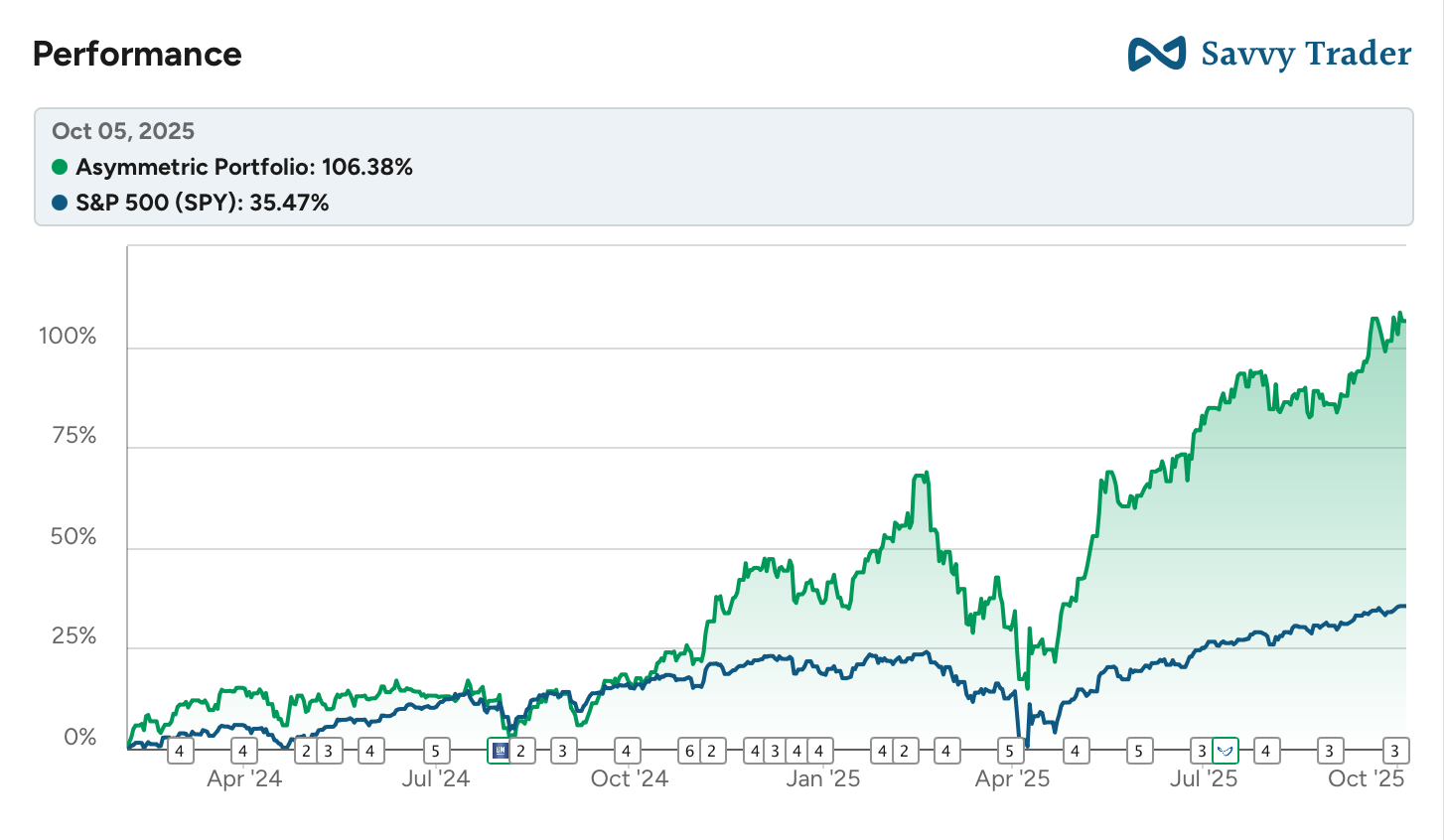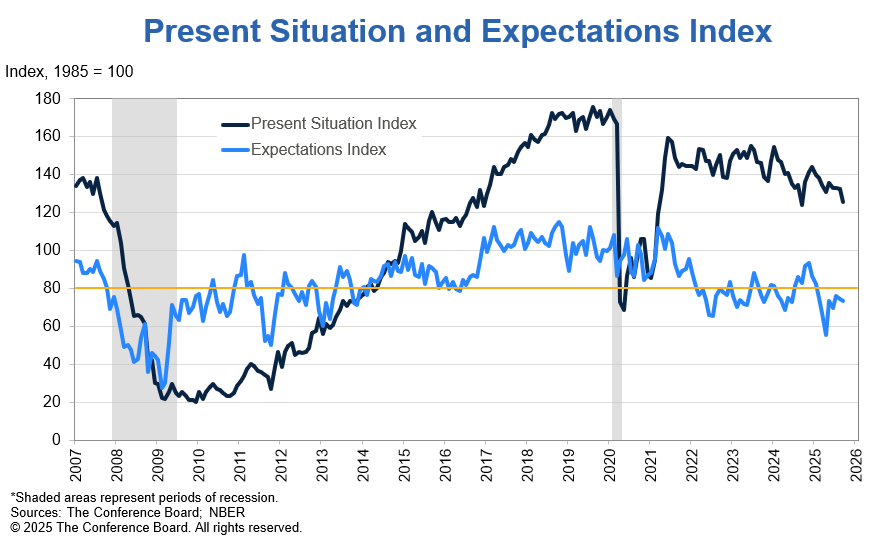The third quarter ended last week, and that means earnings season is around the corner.
This may be a strange earnings season as we have a weak consumer environment, rising tariffs, and AI euphoria colliding to give us some strange results. Below, I’ll get to what I’m looking for.
As for the week on the market, it was up and down. Stocks are holding gains, but I could see a shift in the narrative depending on results in Q3.

s
The Asymmetric Portfolio had a great week as investors poured into high-growth stocks. I’m not going to complain, but I’m also aware that the current market trends can reverse even more quickly than they started.

In Case You Missed It
Here’s some of the content I put out this week.
Bumble Spotlight: A new stock was added to the Asymmetric Universe.
Stocks I’m Buying in October 2025: The stocks I bought last week.
Does Our Humanity Matter?: Many companies are going all-in on AI. Is that the future, or is leaning into humanity a differentiator?
Bumble Follow-Up: I explain how much of Bumble CEO Whitney Wolfe Herd owns and how complicated the ownership structure is.
Keys to Earnings Season
As I sift through earnings reports, starting with Delta Airlines this week, here are the trends I’m looking for.
How Are Consumers?
The economy runs on consumers. Everything, from Walmart to AI, is ultimately dependent on consumers spending money.
With that in mind, here’s what I’m watching:
Restaurant pricing, volume, and same-store sales growth
Retail goods demand
Auto demand and pricing
Loan default rates
Answers about how consumers are feeling will vary across different companies, so keep in mind that one quote doesn’t necessarily equal reality.
According to the Conference Board, 19.1% of consumers said jobs were “hard to get.” And expectations for the future are below the index level of 80, which indicates a recession is on the horizon.

A weak consumer hasn’t hampered the market yet, but what if it combines with tariffs to really hurt revenue and profits?
What’s the REAL Tariff Impact?
My wife works in retail, so I’m cheating a little bit here. But the secret is that most of the impact of tariffs hasn’t been seen either by consumers or in the data!
The REAL impact of tariffs, which I wrote about in April, will come during the Christmas shopping season. That’s because there’s a delay between tariff announcements and prices going up in stores.
Companies don’t want to raise prices, so they’ll sell through what’s in inventory and put pressure on suppliers before finally resorting to raising prices.
Then there’s the lag in timing to create signage and other assets that are planned many months in advance.
So, we will start to hear the real impact of higher tariffs starting about now. Companies are sick of eating tariff costs, and they’re giving each other permission to raise prices to maintain margins. And with inventory ordering likely to be light for the holidays, we may see how tariffs are really impacting prices.
Is the AI Train Still Rolling?
Let’s be honest, AI is holding up the market. As long as OpenAI, Google, Microsoft, and others are pouring hundreds of billions of dollars per year into data center buildouts, it holds up demand for construction equipment, workers, concrete, rare earths, energy companies, and so much more.
Is AI still growing exponentially? I’m watching:
Capex budgets from Alphabet, Microsoft, Meta, and Oracle.
Margins for AI clouds
Energy costs
NVIDIA’s demand
How companies are seeing AI impact their business (revenue and margins)
I have written about my concern that the AI boom is being built on shaky ground, but the market doesn’t see it that way. And as long as the train is rolling, the market will keep rising.
Do any cracks appear?
What Does Management Expect?
I’m not just talking about guidance.
I want to know what management thinks consumers are going to do.
What do they think will happen with interest rates?
And tariffs?
What themes emerge from earnings season conference calls?
Last quarter, I was surprised to hear how many companies thought consumers were doing fine, and yet interest rates would drop. Does that stay true?
With the hot market, there are a lot of questions to answer, and the next few weeks will give us some answers.
Disclaimer: Asymmetric Investing provides analysis and research but DOES NOT provide individual financial advice. Travis Hoium may have a position in some of the stocks mentioned. All content is for informational purposes only. Asymmetric Investing is not a registered investment, legal, or tax advisor, or a broker/dealer. Trading any asset involves risk and could result in significant capital losses. Please do your research before acquiring stocks.

